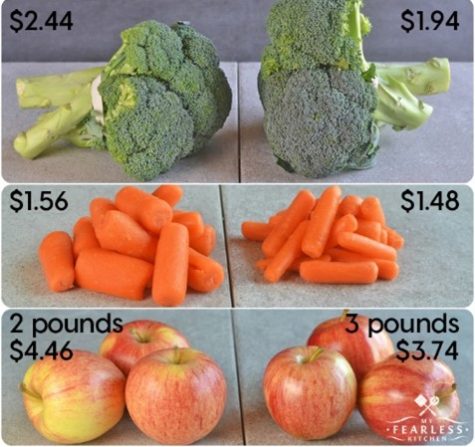Is Going Organic Worth It?
In 2002, The USDA released its national standards for organic products, officially bringing the movement into the mainstream news, and since then the push for more organic foods hasn’t stopped. But the fact is organic foods will never overtake conventional foods because they can’t keep up. They simply aren’t able to supply a large growing population like the US fast enough. So we need to stop expanding the organic food industry.

Non-organic foods use chemicals and synthetic fertilizers to grow their crops without interruption from outside pests. Many people see this as a red flag because they don’t like the idea of chemicals in their food. They think this is unhealthy, but a common misconception is organic foods are healthier for the body. This is in fact not true and leads many people the wrong way, you are always getting the same nutrient no matter what. Some downsides of organic foods showed up during a study at Stanford. The study concluded that there is a high presence of E. coli in organic foods which can lead to salmonella and other harmful diseases. Other studies have found that manure, a natural fertilizer, often transfers E. coli to the soil, plants, and water used in irrigation and cleaning. Also, the use of no pesticides allows bacteria and other harmful organisms easy access to your produce and other foods. Organic food also comes at a more expensive price. For example, at GIANT food store, the price of eggs per one hundred shot up from $26.58 to $41.58. Also, not only are organic farms typically smaller than conventional ones, but they also, on average, take more time to produce crops because they refrain from using the chemicals and growth hormones used by conventional farmers.
Now there obviously are some good things that come from organic farming. This practice has a lower chance to release fewer pesticides into the soil which lowers the chance of the chemicals leaking into your drinking water. Releasing harmful chemicals into the soils also affects the livestock surrounding the farm and can have more negative impacts on secondary organisms. This can also cause chemical runoff which is the movement of water and any contaminants across the soil surface.
Some solutions to this problem would be trying to create some new pesticides that are not that harmful but still do the job. The use of crop rotations, intercropping, cover crops, organic residues, and having nutrients produced on the farm are recycled back to the soil can help. But this will be difficult because these pests always adapt and change to become resistant to the new pesticides.
Sources:
Riley Kodidek, Grade 12. Interests/hobbies include volleyball, video games, hanging out with friends, traveling. Riley plans to attend college to play...




